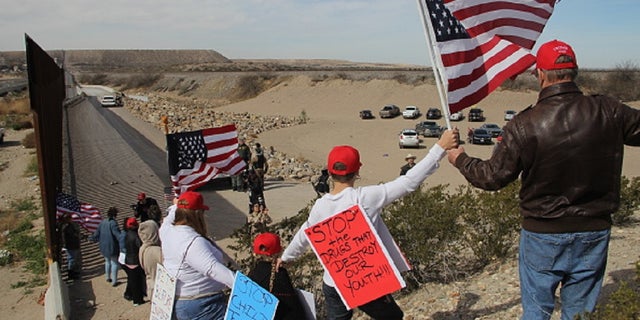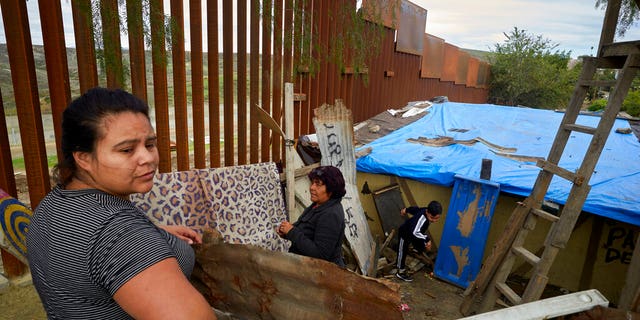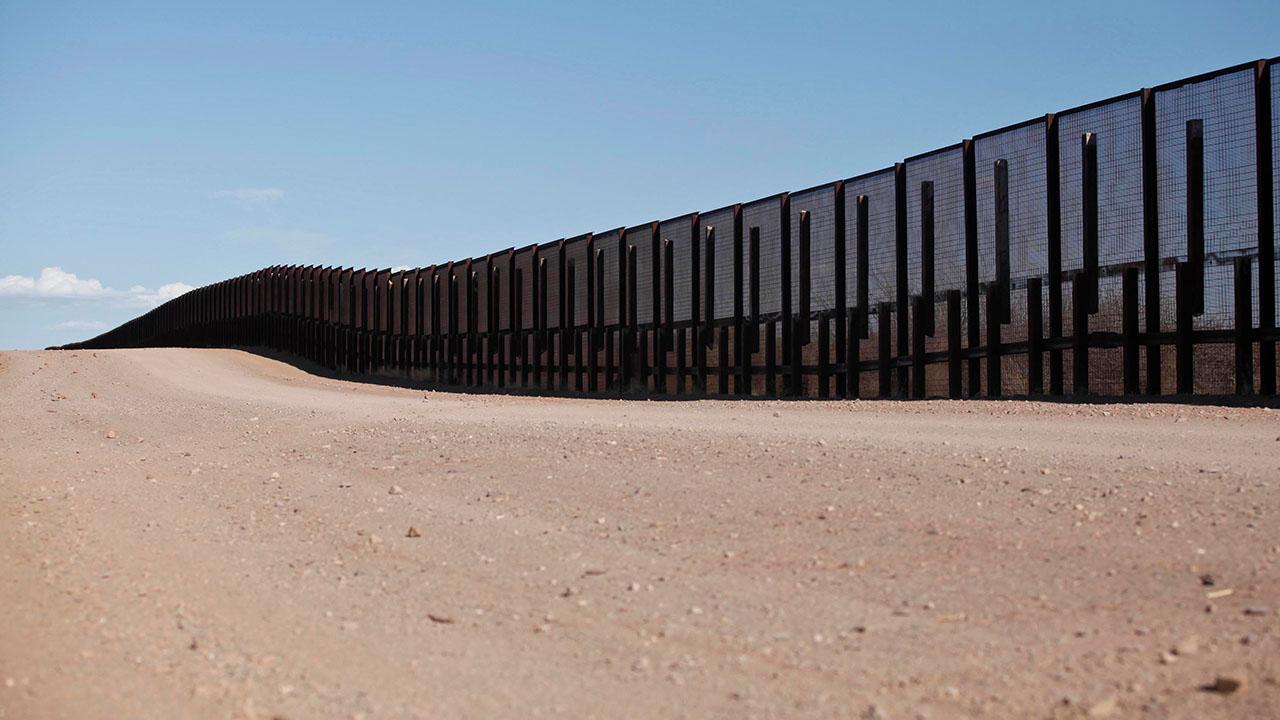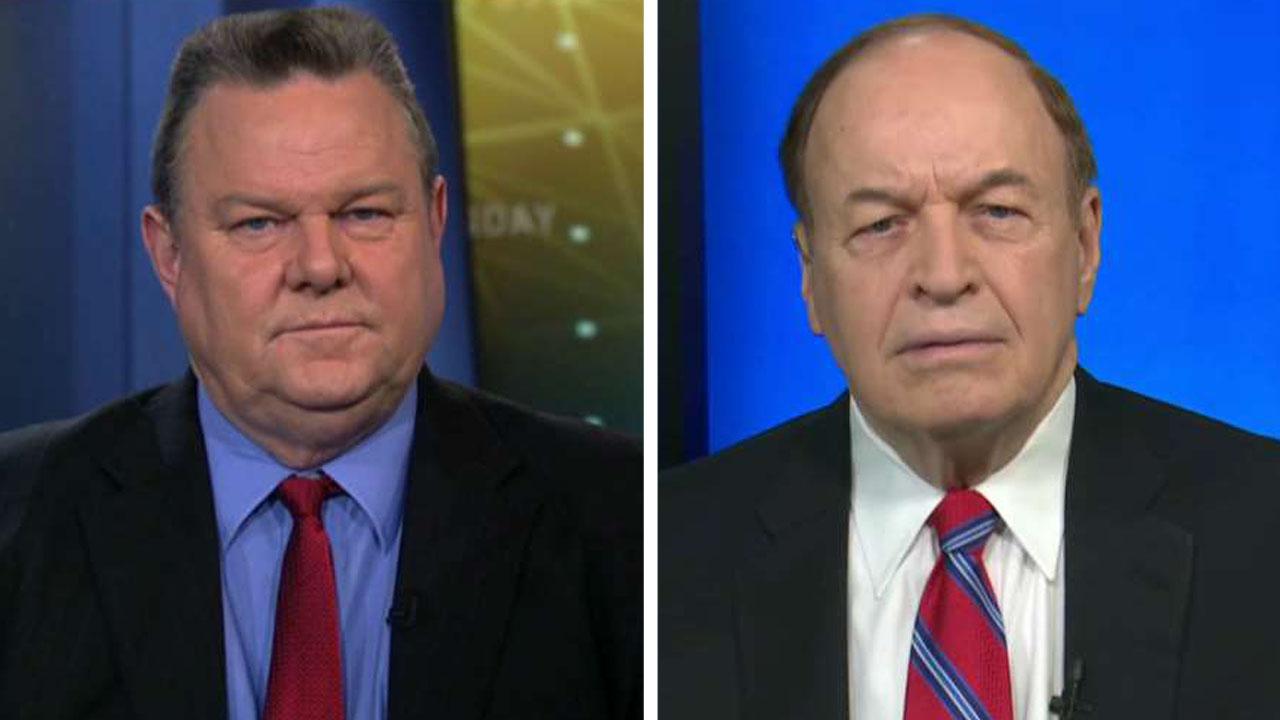Mick Mulvaney on chances of border security deal, Democrats ramping up investigation of Trump administration
Acting White House chief of Staff Mick Mulvaney on the impact for the president’s agenda.
With less than a week to go until another potential partial federal government shutdown begins on Friday, bipartisan compromise talks on funding for President Trump’s proposed border wall have completely broken down, sources tell Fox News.
The sudden development again raised the possibility that Trump will declare a national emergency to access previously appropriated funds to initiate construction on a border wall. The White House agreed to a temporary spending bill late last month to end a historic 35-day government shutdown, although Trump said at the time that the move was not a “concession” and that he would not relent on his demands for a wall.
“Talks have broken down because Senate Republicans are refusing to compromise on limits to the Trump administration’s cruel immigration policies,” a senior Democratic aide told Fox News on Sunday. “A deal that includes new physical barriers must also include limits on the number of ICE detention beds. If Senate Republicans won’t compromise with us on both, we can’t reach a deal.”
Added a GOP source: “The wall is a red herring for the Democrats. We got stuck on an interior enforcement cap,” meaning a possible limitation on the number and type of enforcement actions ICE agents are allowed to take against illegal immigrants, including violent criminals.
Fox News is told if negotiators can’t resolve the situation soon, they are likely looking at trying to pass another temporary continuing resolution to try to avoid a shutdown.
Speaking on “Fox News Sunday,” Senate Appropriations Committee Chairman Richard Shelby, R-Ala.,, who is leading negotiations on border wall funding, said Republicans don’t want to offer concessions on ICE enforcement.
“I think the talks are stalled right now. I’m hoping we can get off the dime later today or in the morning, because time is ticking away, but we’ve got some problems with the Democrats dealing with ICE, that is detaining criminals that come into the U.S. and they want a cap on them,” Shelby said. “We don’t want a cap on that.”
As recently as last Friday, congressional negotiators said they expected a deal to be made, although some key players were pessimistic and Democrats indicated that money for physical barriers would likely end up well below the $5.7 billion that Trump has sought to begin construction of the wall.
DEMS PREVIOUSLY SUPPORTED FAR MORE EXPENSIVE SECURE FENCE ACT — WHAT CHANGED?
The amount discussed hovered much closer to $1.6 billion, participants in the negotiations said, a figure that was in a bipartisan Senate bill last year.
“That’s what we’re working toward,” said California Democratic Rep. Lucille Roybal-Allard.

Supporters of the U.S. Republican Party make a human wall to demonstrate in favor of the construction of the border wall between the United States and Mexico, at the border between Sunland Park, New Mexico, United States and Ciudad Juarez, Chihuahua state, Mexico, on February 9, 2019. (Photo by Herika Martinez / AFP) (Photo credit should read HERIKA MARTINEZ/AFP/Getty Images)
Speaking separately to “Fox News Sunday,” Acting Chief of Staff Mick Mulvaney said that an emergency declaration might not be required.
“There are other funds of money that are available to [Trump] through something called reprogramming, there is money he can get at and is legally allowed to spend,” Mulvaney said, noting that some funds were available even without declaring an emergency. “And I think it needs to be said again and again this is going to be legal — there are statutes on the book as to how any president can do this.”
Still, Mulvaney asserted that a national emergency was “absolutely on the table” and said that a wall will be built, one way or another.
“The president is going to build the wall,” Mulvaney said. “You saw what the Vice President said there, and that’s our attitude at this point ,is we will take as much money as you can give us and then we will go find money someplace else legally in order to secure that southern barrier. But this is going to get built with or without Congress.”
Earlier this weekend, Democrats seemed to draw a firm line on spending.
“Throughout the talks, Democrats have insisted that a border security compromise not be overly reliant on physical barriers,” said Evan Hollander, spokesman for Democrats who control the House Appropriations Committee. “We will not agree to $2 billion in funding for barriers.”
The White House has previously offered a three-year extension of protections for 700,000 Deferred Action for Childhood Arrivals (DACA) recipients, in exchange for the $5.7 billion Trump has been seeking for a barrier along the nation’s southern border with Mexico. The offered deal would also extend protections for 300,000 recipients of the Temporary Protected Status (TPS) program — which protects immigrants from designated countries with conditions that prevent nationals from returning safely.
But Democrats have called the border wall nothing more than a political stunt that they will never agree to fund, while Republicans point to what they have called a “crisis” at the border. Central Americans are increasingly entering the United States illegally in groups of at least 100 people in rugged, remote stretches of the Mexican border, authorities said Friday upon releasing January figures that show total arrests fell for a second straight month.
TRUMP TO PELOSI: IF WALLS ARE IMMORAL, WHY NOT TEAR DOWN EXISTING WALLS TOO?
“The president is going to build the wall.”
A group of 325 Central Americans surrendered to agents Thursday near Lukeville, Ariz., according to Customs and Border Protection. Migrants told authorities that buses and trucks dropped them off throughout the night on a nearby Mexican highway that runs parallel to the border and they entered the U.S. together to wait for agents to find them. There were nearly 150 children, including 32 who were traveling alone.
The Border Patrol has encountered groups of at least 100 people 60 times since Oct. 1, compared to 13 during the entire 2018 fiscal year and two in the 2017 fiscal year, officials said. Many are in the desolate New Mexico Bootheel and Arizona deserts.

FILE – In this Jan. 16, 2019, file photo, Yuli Arias, left, stands near a newly-replaced section of the border wall as her mother, Esther Arias, center, stands in the family’s house that was once threatened by construction along the border in Tijuana, Mexico. The Trump administration said Thursday, Feb. 7, 2019, it would waive environmental reviews to replace up to 14 miles (22.5 kilometers) of border barrier in San Diego, shielding itself from potentially crippling delays. (AP Photo/Gregory Bull, File)
It is unclear what’s driving the sudden uptick of large groups in remote areas, but families, many of them Central American asylum seekers, make up a large and growing percentage of arrests across the border.
U.S. authorities arrested or stopped people for immigration violations 58,207 times in January, down 4 percent from 60,779 in December but up 62 percent from 35,905 in January 2018. It was the second straight monthly decline, though arrests typically fall from December to January.
Families and children traveling alone accounted for 33,861 of those encounters, or nearly 6 of every 10 stopped at official crossings or arrested for entering the country illegally between crossings, mostly from Guatemala, El Salvador and Honduras. That’s a dramatic change from several years ago, when most people who crossed illegally were single Mexican adults.
The large percentage of families and young children has stretched U.S. authorities even more in remote areas where staffing is thinner. Customs and Border Protection says medical attention was needed about 12,000 times for border crossers in the 12-month period ending Sept. 30.
On Jan. 14, a group of 376 Central Americans was arrested near San Luis, Ariz., the vast majority of them Guatemalan families who dug short, shallow holes under a barrier to cross the border, according to authorities.
Fox News’ Mike Emanuel, Chad Pergram, and The Associated Press contributed to this report.






